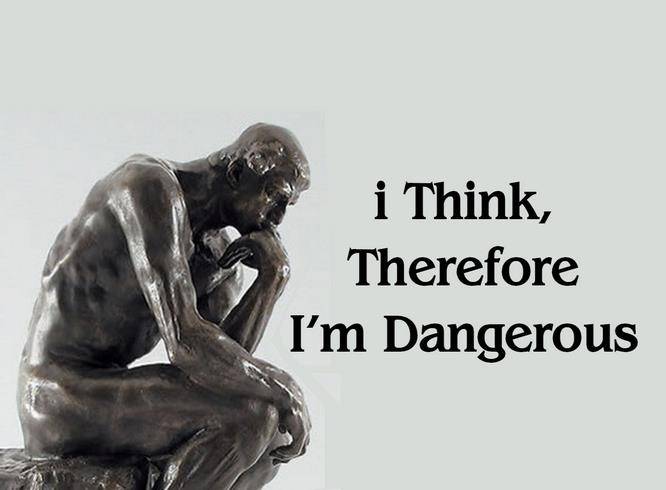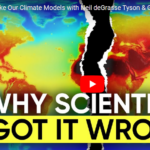
Regelmatig heb ik aandacht geschonken aan de toenemende juridificering van de klimaatdiscussie (zie hier, hier en hier).
Het ging hier overwegend om individuele wetenschappers die naar de rechter stapten om hun gelijk te krijgen. Dat past in de bredere opkomst van de claimcultuur.
Bij Urgenda lag dat anders. Daar klaagde een particuliere organisatie de staat aan. Zie hier.
Maar in de VS heeft nu een aantal procureurs–generaal uit verschillende deelstaten besloten om een heksenjacht te openen op bedrijven en denktanks die niet in de klimaathysterie wensen mee te gaan. In dat verband is het ‘Competitive Enterprise Institute’ (CEI) nu het doelwit, dat thans wordt gesommeerd om alle correspondentie over hun bemoeienis met ‘klimaat’ gedurende een tiental jaren te overleggen. Dat wordt door hen natuurlijk als intimidatie beschouwd. Daarmee overschrijdt de klimaat’discussie’ in de VS opnieuw een escalatiedrempel, die wijst op een politisering van het OM in een actie die verrassend veel lijkt op het McCarthyisme van weleer. Het CEI is hiertegen uiteraard in beroep gegaan.
Onder de titel, ‘Subpoenaed Into Silence on Global Warming’, schreef Megan McArdle voor Bloomberg.
The Competitive Enterprise Institute is getting subpoenaed by the attorney general of the U.S. Virgin Islands to cough up its communications regarding climate change. The scope of the subpoena is quite broad, covering the period from 1997 to 2007, and includes, according to CEI, “a decade’s worth of communications, emails, statements, drafts, and other documents regarding CEI’s work on climate change and energy policy, including private donor information.”
My first reaction to this news was “Um, wut?” CEI has long denied humans’ role in global warming, and I have fairly substantial disagreements with CEI on the issue. However, when last I checked, it was not a criminal matter to disagree with me. It’s a pity, I grant you, but there it is; the law’s the law. …
Speaking of the law, why on earth is CEI getting subpoenaed? The attorney general, Claude Earl Walker, explains: “We are committed to ensuring a fair and transparent market where consumers can make informed choices about what they buy and from whom. If ExxonMobil has tried to cloud their judgment, we are determined to hold the company accountable.”
That wasn’t much of an explanation. It doesn’t mention any law that ExxonMobil may have broken. It is also borderline delusional, if Walker believes that ExxonMobil’s statements or non-statements about climate change during the period 1997 to 2007 appreciably affected consumer propensity to stop at a Mobil station, rather than tootling down the road to Shell or Chevron, or giving up their car in favor of walking to work.
State attorneys general including Walker held a press conference last week to talk about the investigation of ExxonMobil and explain their theory of the case. And yet, there sort of wasn’t a theory of the case. They spent a lot of time talking about global warming, and how bad it was, and how much they disliked fossil fuel companies. They threw the word “fraud” around a lot. But the more they talked about it, the more it became clear that what they meant by “fraud” was “advocating for policies that the attorneys general disagreed with.” …
What exactly would the subpoena prove? That ExxonMobil supported opinions about climate change? That the opinions tended to be congruent with its own interests? That this opinion might have been wrong, and if so, might have encouraged wrong beliefs in others?
This is a description of, roughly, every person or organization in the history of the world, not excluding attorneys general. It’s also not illegal. Especially since, as the New York Times points out, “the company published extensive research over decades that largely lined up with mainstream climatology.” This isn’t preventing consumers from buying into a Ponzi scheme; it’s an attempt to criminalize advocacy.
[…] history has had lots and lots of existentially important debates. If you thought that only the One True Church could save everyone from Hell, the Reformation was the most existentially important debate in human history. If you thought that Communist fifth columnists were plotting to turn the U.S. into Soviet Russia, that was also pretty existentially important. We eventually realized that it was much better to have arguments like these with words, rather than try to suppress one side of them by force of law. …
The rule of law, and our norms about free speech, represent a sort of truce between both sides. We all agree to let other people talk, because we don’t want to live in a world where we ourselves are not free to speak. Because we do not want to be silenced by an ambitious prosecutor, we should all be vigilant when ambitious prosecutors try to silence anyone else.
Lees verder hier.
Op WUWT (‘Watt’s Up With That’) schenkt ook Eric Worrall onder de titel, ‘Attack on Free Speech: CEI Subpoenaed over Global Warming Skepticism’, op overeenkomstige wijze aandacht aan deze zaak:
The Competitive Enterprise Institute has just been subpoenaed, as part of Al Gore’s Climate Witch hunt. This is a move which so blatantly reeks of McCarthyite abuse of power, even some proponents of climate action are horrified at the attack on freedom which this subpoena represents. …
Hij concludeert:
In my opinion, this hysterical executive overreach will be the downfall of the climate alarmist movement in America, just as outrage at the excesses of the McCarthy era brought an end to that dark period of American history.
You don’t have to be a climate skeptic, to recognise that an attack on freedom of speech, in whatever guise, is an attack on everything which America stands for.
More than anything, this authoritarian, un-American attempt to silence dissent betrays the weakness of those perpetrating this attack on the CEI. In a Republic, people who have a compelling case to offer, don’t have to intimidate their political opponents into silence, to win the argument.
Lees verder hier.
Laten we hopen dat Worrall gelijk krijgt. Maar ik ben er niet gerust op. De klimaathysterie is inmiddels te diep geworteld. Het zal m.i. nog vele jaren en honderden miljarden kosten voordat het gezond verstand terugkeert bij het establishment.
Klimaat maakt meer kapot dan je lief is.
Voor mijn eerdere bijdragen over klimaat en aanverwante zaken zie hier, hier, hier, hier en hier.






Greenpeace, Urgenda, WNF zijn het probleem, niet het klimaat.
Pressiegroepen hebben altijd, ten onrechte overigens, te veel macht. Dat blijkt heel erg in de klimaatdiscussie, die steeds meer kenmerkt wordt door “geloof” ipv “feiten”. En als je niet meehuilt met die fanatici, die wars zijn van die feiten, word je weggezet als een gevaarlijk mens.
PS
Het lijkt er in dit artikel wel op, of Climategate een Engelstalige site is ipv een Nederlandse. Moet dat nu echt? Is er wat mis met onze taal?
Pieter,
Je hebt een punt. Maar veel van de klimaatdiscussie en -wetenschap vindt in het Engels plaats. Om dat allemaal te vertalen kost veel tijd en moeite. Let wel! Deze site is gratis en de auteurs zijn allen vrijwilligers, die niet krijgen betaald.
Zo is dat nu eenmaal.
Helaas laat dit zien hoe doorgeslagen het groene geloof lijkt te worden. Alleen al een dergelijke actie laat immers zien dat elk spoor van wetenschap in het groene geloof is zoekgeraakt. Mijn conclusie is dan ook dat dergelijke lieden en organisaties niet meer serieus te nemen zijn, anders dan dat ze een gevaar zijn voor deze maatschappij. Ik doel hierbij vooral op de milieubeweging.
Interessant:
http://www.epw.senate.gov/public/_cache/files/16941f31-b736-4007-90f4-2483a7d0acaa/epstein-testimony.pdf
Dank je!
Ik zou willen dat men zich meer bewust wordt van de afhankelijkheid van altijd voorhanden, betaalbare energie.
Mijn favoriete stelling luidt: “de moderne mens beschouwt de techniek zoals een wilde de natuur”.
Geen mens realiseert zich de technologie, de moeite, de innovaties achter betrouwbare energie, veilig voedsel en water.
In geval van problemen trek je toch een blik techneuten open?
Goed stuk. Obama is in woord een klimaat extremist, maar soms zijn zijn daden anders. Goed dat hij dit jaar voor het laatst zit.
Probleem is dat het klimaatdebat politiek is en niet wetenschappelijk. Een goed voorbeeld daarvan is de (in werkelijkheid niet-bestaande) 97% consensus; sinds wanneer gaat in de wetenschap om “meeste stemmen gelden” i.p.v. om feiten?
Tijn, In de wetenschap gaat het inderdaad niet om de meeste stemmen gelden. De maatschappij, de wereld, heeft echter uitgangspunten nodig en daarom is de wetenschap gevraagd om tot een consensus te komen waar wij mee verder kunnen. Dat de wetenschap ergens unaniem over is, is namelijk zeldzaam. En dus wordt gezocht naar ‘meest waarschijnlijke’ scenario’s. Waarvan de wetenschap van te voren over zegt: We kunnen het ook mis hebben.